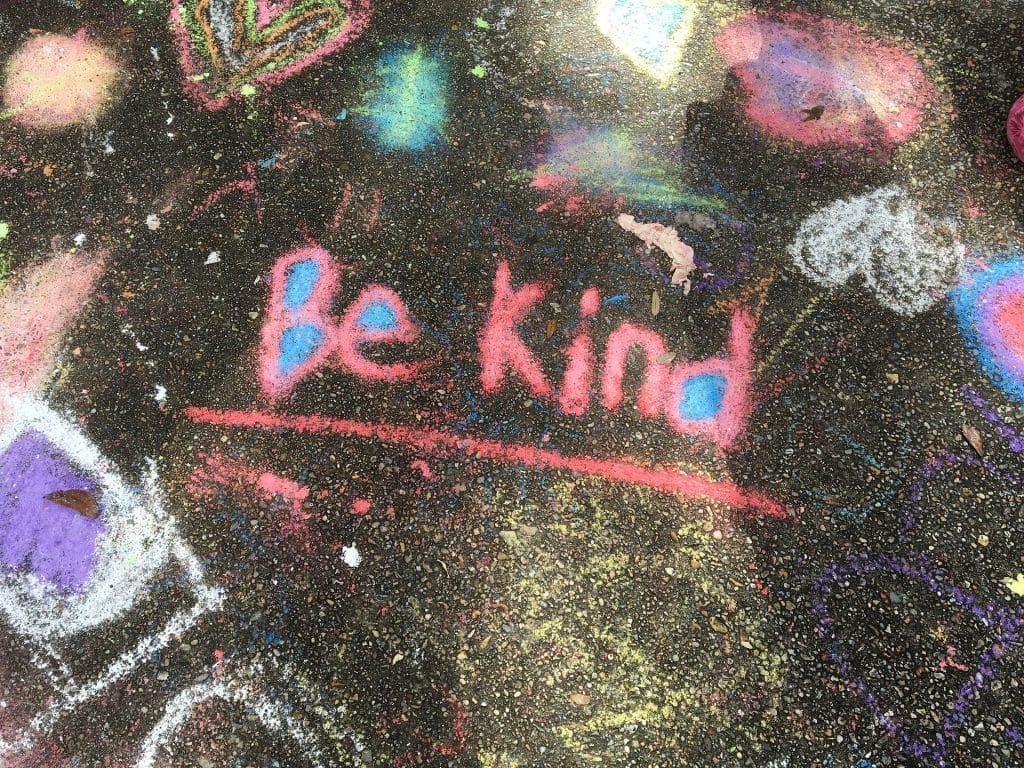Kindness is the central theme for Mental Health Awareness Week that starts today, 18 May. Our Communications Manager Jane Edmonds looks at the motivations behind kindness and its importance right now as we navigate the Covid-19 lockdown.
Have you heard of the charity 52 Lives? It was started by the writer Jaime Thurston in 2014. The story goes that she spotted an ad while scrolling through a second-hand furniture website: a single mother looking for a rug to cover her broken floor so her children wouldn’t cut their feet.
Sensing a desperation in the words, Thurston called to find out more about the woman’s situation. 52 Lives was born, a platform for people to nominate “someone in need of kindness”.
In a newspaper interview in 2018, Thurston explained her thinking in ways that really resonate with me today, as we deal with the strangeness of our Covid lockdown.
“We are living in a strange world, a virtual world, full of comparison and isolation. We spend so long staring at our phones and avoiding real contact with people, and it ultimately makes us unhappier and lonelier. So I think people are searching for something fulfilling. I think kindness unlocks something deep within people.”
Too right. During my first two weeks of lockdown while my son was sick and we were totally alone – him ill, me worried – it was the kindness of my neighbours checking in, leaving gifts, rushing over with medicines, that got me through. And these were often neighbours I’d never met before, brought together through the proximity of our new circumstances.
And if our social media feeds are anything to go by, it seems we’re seeking out stories of kindness too. Is that because we simply can’t walk on by anymore? That it’s just not viable for us to not notice? Thurston explains: “Kindness has so many benefits. When we are kind to someone, it doesn’t just help that person, it is scientifically proven to improve our own physical and mental health as well. So at a time when rates of depression and anxiety seem to be skyrocketing, kindness could be a very simple but powerful antidote.”
In June 2018, psychotherapist Padgraig O’Morain published Kindfulness and took this thought one step further. He asserted when interviewed that: “People who practice self-compassion, which is kindness towards oneself, are good at taking on challenges. It is often our own condemnation that we most fear.”
O’Morain focused on an inward-looking kindness, rather than random acts of kindness to others. He explained that our inner voice could say: “Look, even though you’ll never run a marathon before you go to work every day, or polish off your entire to-do list to universal applause by 11am, or become a tech billionaire before you’re 25, you’re OK, you’re fine, relax.” So do we choose kindness to look after ourselves? A sort of oil to keep us working more smoothly?
Perhaps this is the key to the new wave of kindness? As we feel the weight of the crisis and notice our tiny place within it, we choose kindness as a response to the darkness in the hope that our lives will improve. Is that it?
If this is true then kindness is bang on the money, far more modern than old-fashioned or altruistic. Is that why it’s all the rage? Not because when the temperature falls and we wrap ourselves up warm, we feel compelled to offer woolly hats to the street homeless because we want to help, but because taking action, being kind, makes us feel more successful? Well. Let’s hope it’s more than that.
At Second Step, it’s about recognising we’re all in this together, the seamlessness between us and them, between staff and client, frontline worker and manager. It’s too easy to berate the other, and feel separate and apart. To give in to the defensiveness which comes with all of that: “They won’t understand, they haven’t been where I am.”
For us, and more so now than ever as we struggle to adjust to our new normal, sharing as we do this universal national trauma, we can reach across and understand, sit alongside and really see that I am you and you are me.
Surely the acts of kindness we all see and feel around us in our daily work are there because of this connection, the levelling and belonging of shared moments, strong relationships and yes, shared kindnesses. Putting it simply, it feels good and is good to be kind. For everyone involved.

